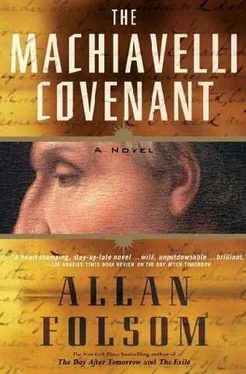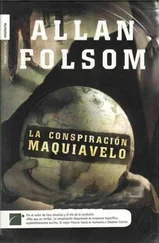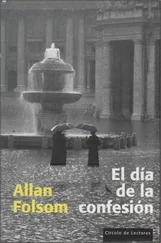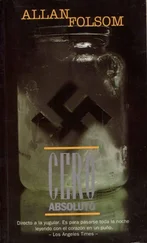"God's love pours out among us. As it pours out for Caroline, and for her husband, Michael, and their son, Charlie," Reverend Beck's voice filtered through the church.
"In the words of the poet Laurence Binyon-
They shall not grow old, as we that are left grow old:
Age shall not weary them, nor the years condemn.
At the going down of the sun, and in the morning
We will remember them.
"Let us pray."
As Reverend Beck's prayer resonated through the church, Marten felt someone slide into the pew beside him. He turned to see a very attractive young woman with short dark hair, dressed respectfully in a black suit. A large digital camera hung from one shoulder, and around her neck was an international press pass with her photograph, her name, and her media affiliation, Agence France-Presse. Marten recognized her as the woman who had accompanied Reverend Beck when he'd visited Caroline in the hospital. He wondered what she was doing there, why she had come to the service. And why she had seated herself next to him.
Then Beck's prayer ended, organ music swelled, and the service was over. Marten saw Beck step down from the pulpit and go over to Caroline's sister and her husband in the front row. Around him people stirred and began to stand. As they did the young woman turned toward him.
"You are Mister Nicholas Marten?" she said with a French accent.
"Yes. Why?" he asked cautiously.
"My name is Demi Picard. I don't mean to intrude, especially under these circumstances, but I wonder if I might have a few moments of your time? It's about Mrs. Parsons."
Marten was puzzled. "What about her?"
"Perhaps we could talk where it is less crowded." She looked toward the large open doors behind them, where people were filing out of the chapel.
Marten studied her carefully. She was tense with anticipation. Her eyes, wide and deep brown, never left his. There was intrigue here-maybe she knew something about Caroline he didn't, or at least something that could help.
"Alright," he said. "Let's go."
Marten let her lead the way through the crowd as they walked from the dark of the church into bright afternoon light. Outside, police provided a tight web of security as a long string of cars pulled up one by one to collect the VIP mourners. Behind them and to one side was a gaggle of media satellite trucks. Closer in, television cameras taped the activity while stand-up correspondents reported the event. Clips for the early and late news, Marten thought. And then that would be the end of it, the last public interest in the life of Caroline Parsons.
Demi led them away from the church toward a parking area on the church grounds near Nebraska Avenue. As they went, he caught sight of two familiar figures standing back watching as people left: Metropolitan Police detectives Herbert and Monroe, the man-and-woman team who had questioned him about the "murder" of Lorraine Stephenson. He wondered if by now they too had learned of the white-haired South African scientist Merriman Foxx and were there hoping, as he was, that he might show up at Caroline's service.
"Hey, Marten!" A voice cried out from behind. He turned to see Peter Fadden coming quickly toward them. A moment later he caught up.
"Sorry, I'm running late." He glanced at Demi, then handed Marten a letter-size envelope. "My cell phone number's in there along with some other material you might find interesting. Call me when you get back to your hotel." With that he turned and left, disappearing into the throng still lingering outside the church.
Marten stuck the envelope in his jacket and looked to Demi. "You wanted to talk about Caroline Parsons. What about?"
"I believe you were with her in the last days and hours before she died."
"So were a lot of other people. You included-you came in with Reverend Beck."
"True," she said with a nod, "but most of the time you were alone with her."
"How do you know that? How did you even get my name?"
"I'm a writer and photojournalist doing a photo-essay book on the clergy that minister to prominent politicians. Reverend Beck is one of them. It's why I was with him when he visited the hospital and why I came to the service today. Reverend Beck is pastor of the church where the Parsons family were members. He knew you had been keeping vigil over Mrs. Parsons. He was curious about you and asked one of the nurses. I was there when he learned who you were and that you were a close friend of hers."
Marten squinted in the glare of the afternoon light. "Just what is it you want?"
Demi took a step closer. She was on edge and anticipatory, even more than she had been when she approached him inside the church. "She knew she was dying."
"Yes." Marten had no idea where she was going with her questioning or why she had sought him out.
"You and she must have talked."
"A little."
"And under the circumstances she might have told you things she would not have told others."
"Maybe."
Suddenly Marten was on his guard. Who was she and what was she trying to find out? What Caroline knew or had suspected about Dr. Stephenson and what had been done to her? Or what she felt had happened to her husband and son? Maybe even about the white-haired man, Merriman Foxx, if he was indeed the person Caroline had been referring to.
"Just exactly what is it you want to know?" he said flatly.
"Did she mention-?" Demi Picard hesitated.
Just then Marten saw a dark gray Ford turn the far corner in the parking lot and come toward them. He looked back to Demi. "Did she mention what?"
"The"-she hesitated-"witches."
"Witches?"
"Yes."
The Ford was closer now and slowing. Marten swore to himself. He knew the car and the two people in it, and the way it was slowing told him they had no intention of driving past. Quickly his eyes went to Demi. "Witches?" he pressed her. "What are you talking about?"
Then the Ford was there, pulling up and stopping, its doors opening. Detective Herbert got out from behind the wheel, Monroe from the front passenger seat.
Demi glanced at the police. "I have to go, I'm sorry," she said abruptly, then turned and walked quickly back toward the church.
Marten took a breath, then looked at the detectives and tried to smile. "What can I do for you?"
"This." Monroe snapped a handcuff over one wrist and then the other.
"For what?" Marten was outraged.
Herbert started him toward the car. "We let you attend Mrs. Parsons's service. That's the only favor you get."
"What the hell does that mean?"
"It means we're going for a little ride."
"A ride where?"
"You'll find out."
• BRITISH AIRWAYS FLIGHT 0224, WASHINGTON,
DULLES, TO HEATHROW, LONDON, 6:50 P.M.
Marten watched the hardscape and parkland of Washington dissolve to a twilight sky as the plane banked steeply and headed out over the Atlantic. Handcuffs gone, he was crammed into a window seat of three-across seating in a sold-out coach section and arm to elbow with his two companions, a just-married, hand-holding, cooing couple who hadn't taken their eyes off each other since they'd buckled in. And who, he guessed, weighed somewhere in the neighborhood of three hundred pounds each.
There had been a standby line of at least twenty, but intrepid detectives Herbert and Monroe had found a seat for him anyway. Their entire MO had been quick and slick. Stopping by his hotel, letting him collect his personal belongings, then whisking him to Dulles International with barely a dozen words said between them. The few they used had been simple and succinct. No interpretation needed. "Get out of Washington and stay out."
They had waited with him at the British Airways gate right up until boarding time and then put him on the plane themselves just to make sure he didn't decide to get off and venture back into their fair city at the last minute. The procedure wasn't unusual; cops did it all the time to get rid of people they couldn't charge with a crime but didn't want around either. The process was made easier if that person was from another city, state, or, as in his case, country.
Читать дальше












